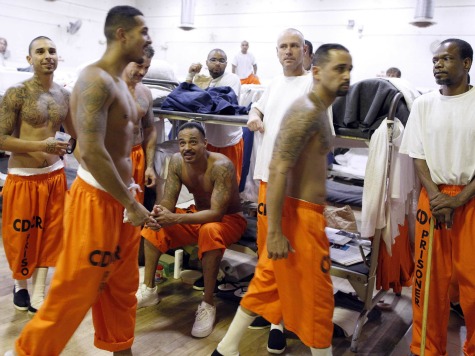
When whites in New York City and San Francisco were informed that blacks disproportionately make up the country’s prison population, they were actually more likely to support tougher sentencing laws.
Stanford University psychology researchers Rebecca Hetey and Jennifer Eberhardt “wanted to know whether making white people aware of racial disparities in incarceration would bolster or diminish their support for draconian policies.” They conducted their experiments in San Francisco and New York – two of the most liberal cities in the country. In Psychological Science they revealed that “when white people were told about these racial disparities, they reported being more afraid of crime and more likely to support the kinds of punitive policies that exacerbate the racial disparities.”
Their research determined that “informing the white public of this disproportionate incarceration rate may actually bolster support for the very policies that perpetuate the inequality.”
According to Stanford Report, “their first experiment unfolded at a train station near San Francisco:”
A white female researcher asked 62 white voters to watch a video containing mug shots of male inmates. Some of the participants saw a video in which 25 percent of the mug shots were of black men, while others saw a video in which the percentage of black men among the mug shots rose to 45 percent.
The participants then had an opportunity to sign a real petition aimed at easing the severity of California’s three-strikes law. “It seemed like a great opportunity – a real-life political issue – to test this question of whether blacker prison populations lead people to accept these more punitive policies,” Eberhardt said.
The results were clear. Over half of the participants who’d seen the mug shots with fewer black men signed the petition, whereas only 27 percent of people who viewed the mug shots containing a higher percentage of black inmates agreed to sign. This was the case regardless of how harsh participants thought the law was.
In their next experiment, “Hetey and Eberhardt showed 164 white New Yorkers statistics about the prison population,” and “New York residents read about black inmates either in terms of the national incarceration rate (40 percent of prisoners are black) or the New York City rate (60 percent)” before being asked “about their support for the stop-and-frisk policy:”
About 33 percent of the participants who saw the lower national statistic were willing to sign a petition to end the policy. But only 12 percent of those who saw the higher city rate of black incarceration were willing to sign the petition. Participants who saw the higher rate of black incarceration were more likely to report concern over crime, which was associated with reluctance to sign the petition.
The study suggests that though “social activists or policymakers trying to fight inequality often use statistical evidence to motivate people to join their cause,” that “strategy may backfire.”
“Many legal advocates and social activists seem to assume that bombarding the public with images, statistics and other evidence of racial disparities will motivate people to join the cause and fight inequality,” Hetey told Stanford Report. “But we found that, ironically, exposure to extreme racial disparities may make the public less, and not more, responsive to attempts to lessen the severity of policies that help maintain those disparities.”
Acknowledging that “African-Americans constitute only 12 percent of America’s population” while representing nearly “40 percent of the nation’s prison inmates,” Sens. Rand Paul (R-KY) and Cory Booker (D-NJ) have teemed up on a bill to reform the nation’s sentencing laws.
“Three out of four people in prison right now for non-violent crimes are black or brown. Our prisons are bursting with young men of color, and our communities are full of broken families,” Paul recently told the National Urban League, according to CNN. “There is a cycle of poverty that often leads to drugs, to debt, and to prison. In prison, child support can accumulate into the thousands of dollars. Release from prison then finds that employers don’t want to hire a convicted felon.”
Paul mentioned that crack cocaine has harsher penalties than powder cocaine, and he said he is fighting for reforms because when there are “few options of real work, the cycle begins again.”
“I say enough’s enough,” he said. “I won’t sit idly by and watch our criminal justice system continue to consume, confine, and define our young men. I say we take a stand and fight for justice now.”
The next time Paul travels to Berkeley or New York City, he may be better off not mentioning that “our prisons are bursting with young men of color” to convince liberal whites to support his sentencing reforms.

COMMENTS
Please let us know if you're having issues with commenting.